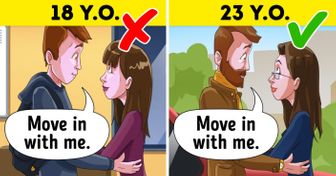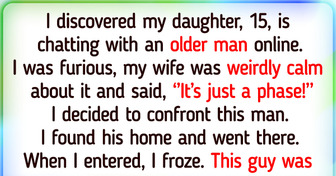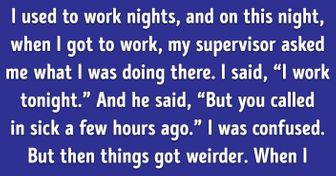11 Rules Our Parents Followed That May Puzzle Us Today

Our parents are the first people we look up to, and they’re our primary model or standard when it comes to romantic love. We might not be aware of it, but the way we interact with them could also have a strong impact on our own relationships. As clinical psychologist Dr. Rebecca Bergen explains, we tend to “internalize” the examples we see from our folks and apply them to our own lives.
Here at Bright Side, we believe in the importance of healthy relationships, and we’d like to help shed some light on how our parents could influence the way we give and receive love. We’ll also share some tips on how to break free of negative relationship patterns.
Here are 4 ways parents could unknowingly affect our romantic perceptions and behaviors.
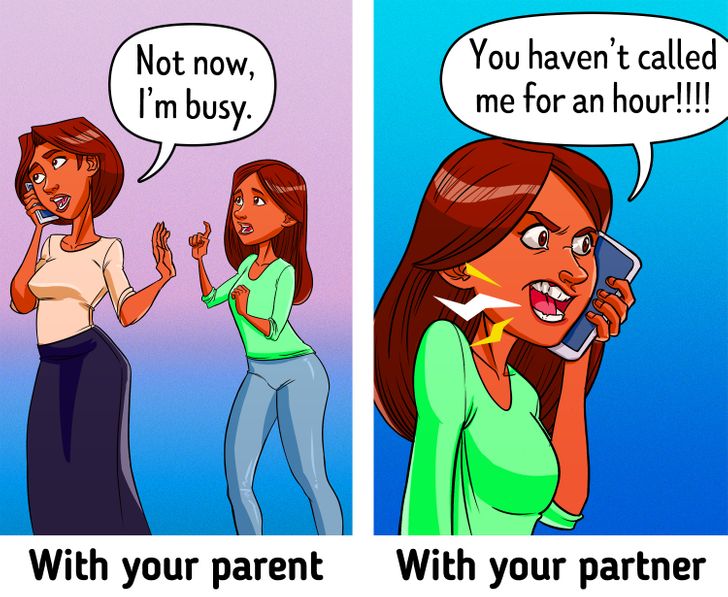
Inattentive and negligent parents could trigger attention-seeking behavior in their children. This type of conduct can extend through adulthood, and eventually, into these people’s relationships. Ignored children can grow up to be very needy, often demanding attention from their partners because their parents deprived them of it.
Neglect may also cause abandonment issues, and people who are afraid of being deserted tend to feel more insecure about their loved ones and friends. They have a difficult time trusting their partner, and they are also more likely to stay in unhealthy relationships.
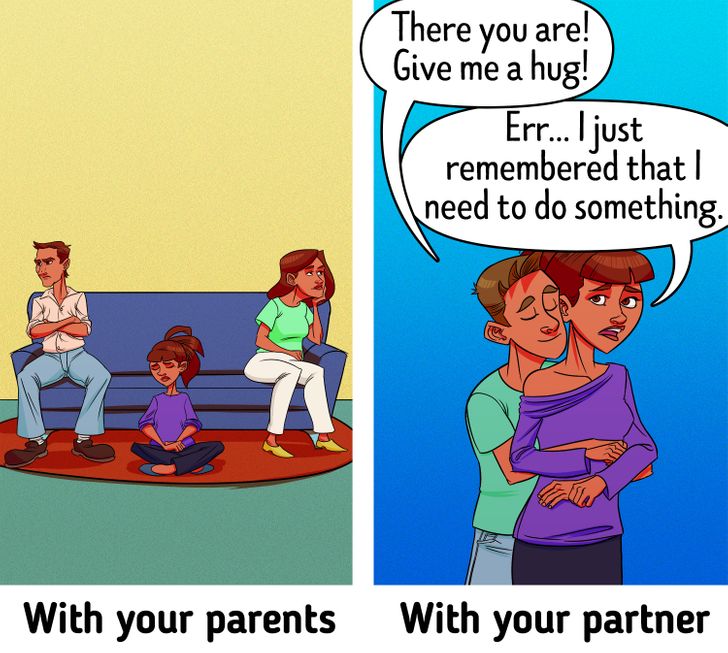
Dr. Bergen states that a lack of physical affection from parents, such as hugs or kisses, may cause an aversion to these actions. Dr. Scott Carroll adds that children who grew up with parents that discouraged showing emotions may end up being “stoic and unexpressive in their relationships.”
These people usually have difficulties communicating with their partners, and they struggle with the physical or intimate aspects of the relationship. They resort to other ways of expressing their love instead — like by offering gifts and allocating time for their significant other.
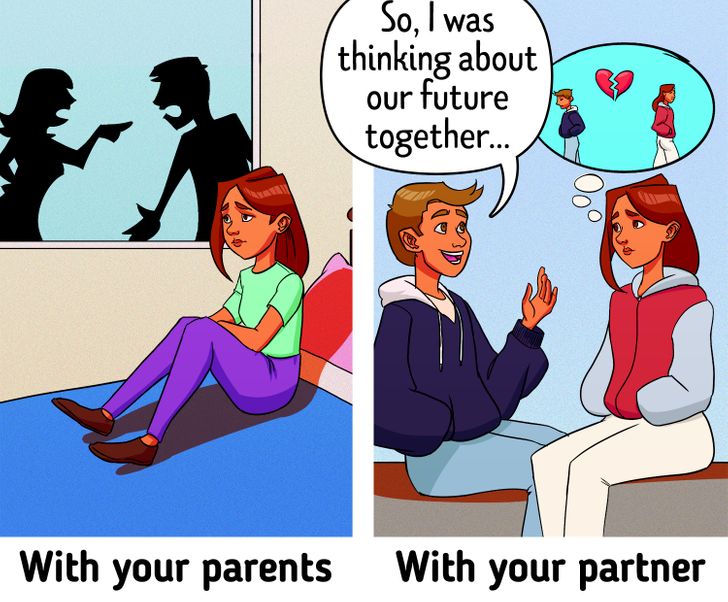
Research indicates that children with divorced parents are more likely to lose faith in marriage, and they’re less likely to consider matrimonial unions as a long-term commitment. Dr. Carroll, however, explains that 2 things can happen to adults after their parents separate — either these people become extremely cautious with their partners, or they carelessly dive right in but also end the relationship just as fast.
Relationship expert April Masini shares another view, saying that witnessing divorce and its consequences could motivate some people to avoid committing the same mistakes and push them to work harder on their relationships.
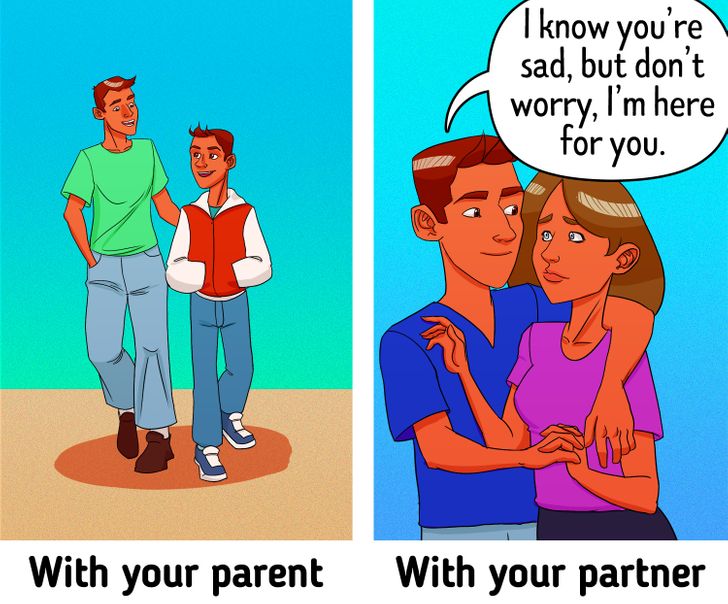
According to the results of one study, supportive parents raise children with fewer behavioral problems. Dr. Carroll also mentions that helpful parents can guide their children on how to deal with relationship troubles.
Child psychologist and parenting expert, Dr. Vanessa Lapointe, notes that the love we receive from our folks serves as a framework for how we think love should be. If parents are emotionally expressive and present, their sons and daughters are more likely to be comfortable with sharing their feelings, opinions, and affection toward their partners.
In case you begin to notice some of these negative patterns within your relationship, here are a few tips that could help you deal with these challenges.
Just because your parents didn’t have a successful marriage doesn’t mean that you are destined to have a failed relationship as well. While past experiences or traumas could affect your perspective in life, as an adult, you are capable of making your own decisions and shaping your own future.
Take all the negative memories and use them as a reminder of what you should avoid doing in a relationship. If you were deprived of a happy or healthy family connection when you were younger, take this opportunity to strive for a better bond with your partner.
Dr. Bergen suggests reflecting on your childhood to recall your interaction with your parents and hopefully identify if certain patterns are manifesting in your relationships. Writing in a journal can also help you dive deeper into your thoughts, emotions, and behaviors. If you’re having a difficult time dealing with all the negativity, consider seeing a therapist.
Open communication promotes healthy relationships and creates a stronger bond between you and your significant other. Dr. Bergen also recommends exploring new things with your partner, connecting on a deeper level, and freely expressing your emotions to each other.
Do you think your experience with your parents affected your past or current relationship? Share your thoughts with us in the comment section.

